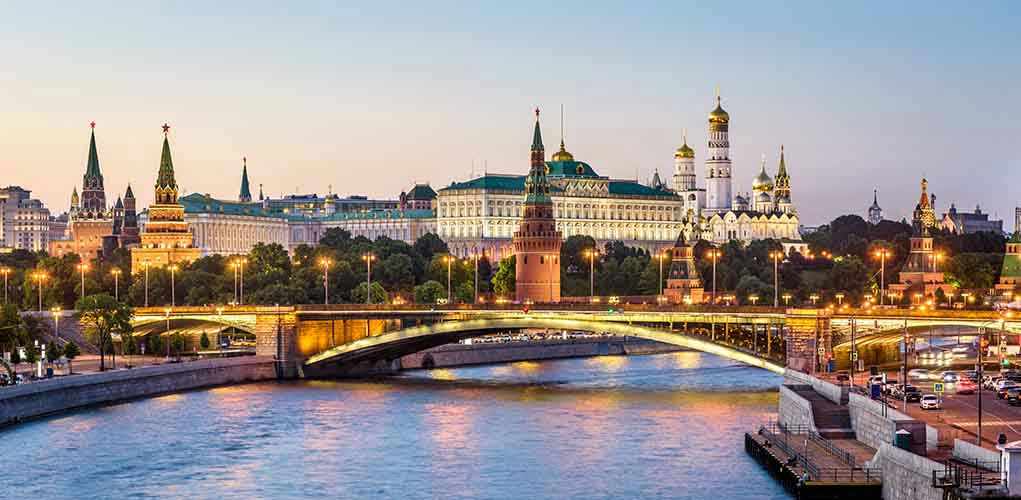
Zelensky’s chilling threat to the Kremlin—urging Russian leaders to “know where the bomb shelters are”—underscores how global instability is fueled by reckless foreign aid and failed peace efforts, putting American interests and constitutional priorities at risk.
Story Snapshot
- Ukraine’s President Zelensky warned Kremlin leaders of strikes on Russian centers of power, raising fears of wider conflict.
- Trump’s administration reversed course, backing advanced arms shipments to Ukraine and supporting deeper strikes inside Russia.
- Russian officials responded with threats of devastating retaliation and accused the West of escalating the crisis.
- Diplomatic efforts to stop the war remain stalled, with both sides preparing for possible escalation.
Zelensky’s Ominous Warning Signals Escalation Risk
Ukrainian President Volodymyr Zelensky issued a grave warning to Russia’s leadership on September 25, telling Kremlin officials to “know where the bomb shelters are.” This threat comes as Ukraine, emboldened by renewed U.S. military aid under President Trump, signals readiness to strike Russian power centers if provoked. Zelensky clarified that Ukraine’s targets would be military infrastructure and energy facilities, not civilians, but the rhetoric marks a sharp escalation. Such statements alarm those concerned with America’s role in fueling costly, unwinnable foreign conflicts that threaten to drag the U.S. into deeper entanglements overseas.
The timing of Zelensky’s remarks is critical. Just days earlier, Trump’s administration approved a major aid package to Ukraine, including advanced missile systems, and publicly endorsed Ukraine’s right to strike targets inside Russia. This marks a dramatic policy shift from earlier calls for restraint, reflecting mounting frustration with the lack of diplomatic progress and ongoing Russian attacks on Ukrainian cities. For many Americans, especially conservatives wary of endless foreign intervention and ballooning defense budgets, this new direction raises urgent questions about national priorities and the wisdom of deepening U.S. military commitments abroad.
Trump Administration’s Policy Shift and Its Implications
President Trump’s decision to greenlight advanced weapons for Ukraine and openly support strikes on Russian territory is a stark departure from previous policy. The administration justified the move by citing persistent Russian aggression and the failure of peace talks. However, this escalation risks embroiling the U.S. further in a conflict with nuclear-armed Russia, potentially endangering American lives and resources. Many conservative observers argue that the priority should be securing America’s own borders and addressing domestic crises, not writing blank checks for foreign wars that offer little tangible benefit to U.S. citizens.
While Trump’s approach is framed as a deterrent designed to force Russia to the negotiating table, the reality is that each new round of military aid and rhetorical escalation increases the risk of unintended consequences. Russian officials, including former President Dmitry Medvedev, have responded with ominous threats of their own, warning of retaliation with “weapons that no bomb shelter can protect against.” Such saber-rattling only heightens the stakes, leaving many Americans frustrated with policies that seem to prioritize global policing over constitutional governance and national security.
Diplomatic Breakdown and Growing Global Instability
Diplomatic efforts to resolve the Russia-Ukraine conflict remain at a standstill. Despite recent summits and repeated calls for a ceasefire, neither side has shown willingness to compromise. Ukraine continues to launch drone strikes on Russian infrastructure, while Russia retaliates with missile attacks on Ukrainian cities. Trump’s recent reversal—shifting from cautious engagement to open support for deeper Ukrainian strikes—reflects frustration with diplomatic gridlock, but also exposes the limits of American influence abroad. This perpetual cycle of escalation and retaliation undermines global stability and diverts attention from the pressing needs of American families and communities.
The ongoing conflict has far-reaching consequences. Disruption of Russian energy infrastructure threatens global energy markets, while increased militarization in Eastern Europe raises the specter of a broader war. Defense industries benefit from surging demand for advanced weaponry, but ordinary citizens face higher costs and heightened insecurity. For conservatives who value limited government, responsible spending, and the protection of American sovereignty, the current trajectory is deeply troubling. It is a stark reminder of the dangers posed by globalist agendas and endless interventionism, and the urgent need to refocus on defending America’s interests at home.
Expert Analysis: Strategic Deterrence or Dangerous Gamble?
Security analysts describe Zelensky’s warning as a strategic move aimed at deterring further Russian aggression by threatening previously untouchable targets. Yet, many experts caution that enabling Ukraine to strike deep into Russian territory could provoke disproportionate retaliation, increasing the risk of a wider war. While Western officials generally support Ukraine’s right to self-defense, they also warn against actions that could spiral out of control. The situation remains fluid, with each escalation reducing the chances of a negotiated settlement and raising the stakes for all parties involved. For Americans concerned about constitutional values, fiscal responsibility, and the preservation of peace, the need for prudent, America-first leadership has never been clearer.
Zelensky tells Kremlin leaders they should 'know where the bomb shelters are' in ominous warning:
Ukrainian President Volodymyr Zelenskyy warned leaders in Moscow that they should familiarize themselves with their nearest bomb shelter in an ominous warn… https://t.co/CLlVdsRb1c— Elwin Sidney (@ElwinSidney) September 25, 2025
Ultimately, Zelensky’s threat and the Trump administration’s new policy highlight the dangers of unchecked foreign aid, government overreach, and the prioritization of global conflicts over core American interests. As the world edges closer to a potential tipping point, it is vital for leaders to remember that the primary duty of government is to defend the Constitution, protect families, and uphold the values that make America strong and free.











